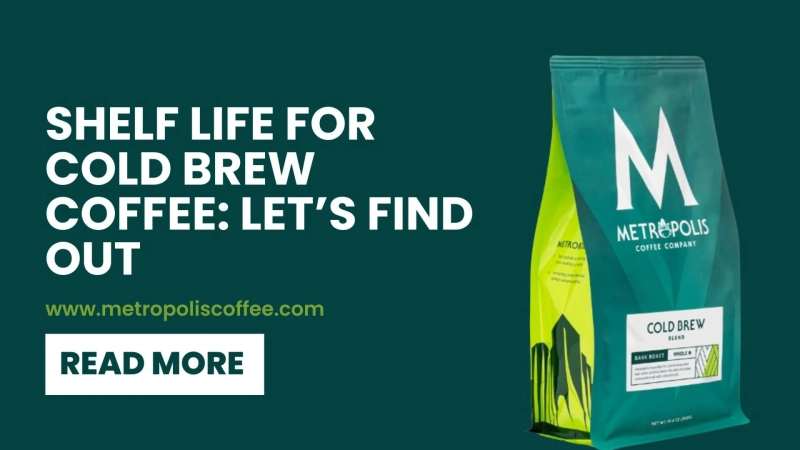Many people mistake Cold Brew Coffee for regular coffee poured over ice. The truth is that it isn't, and cold brew coffee is very different from traditional coffee.
What’s Cold Brew Coffee?
Cold brew coffee is made by steeping ground coffee beans in water for nearly a day before straining the grounds. Your patience has resulted in an incredibly strong, cold brew coffee concentrate with intense flavor and a mildly bitter taste.
Cold brew coffee is typically steeped for a full 24 hours. Before drinking, dilute your drink with water, cream, or a milk substitute. The dilution process reduces bitterness while producing twice as much coffee as hot brewed coffee.
How Long is Cold Brew Coffee Good For?
Because you can make a lot of coffee in concentrated form, you'll most likely save the leftover beverage for later use.
Cold brew coffee made at home has a much longer shelf life than hot brewed coffee. Day-old hot coffee rarely tastes as good as freshly brewed coffee. However, with cold brew, you can expect to enjoy your batch for up to two weeks after it's first made. The concentrated coffee has the best flavor within the first week.
You can expect a much shorter shelf life if you dilute the coffee concentrate with cream before storing it in the refrigerator. Diluted cold brew has a shelf life of about 2-3 days before the flavor is permanently altered and the liquid begins to spoil.
Can Cold Brew Coffee Go Bad?
Because it isn't made in a 'clean' environment, the average cold brew concentrate made at home lasts about two weeks, which means your home setup likely lacks the proper sterilization required in commercial manufacturing.
Mold and bacteria will eventually take over the liquid in your refrigerator, rendering it unfit for consumption.
Longer shelf life in commercial brews will necessitate additional production work. Heat pasteurization or high-pressure pasteurization will be required to achieve a shelf life of 3-6 months. Both types of pasteurization have the potential to alter the flavor of your coffee. It will also raise your overall manufacturing costs, but it will result in shelf-stable products.
Sticking With The Freshest Option
Cold brew coffee makers are gaining popularity in coffee shops that have kegs on tap. Because of the refrigerated kegs, some manufacturers can produce batches of cold brew that can be stored for up to 6 weeks.
Many cold brew coffee makers avoid additives and preservatives in order to ensure a delicious cold brew coffee drink rather than a long shelf life, allowing them to promote cold brew as a healthier alternative to other coffee beverages.
If you're looking to produce larger batches for the Best Coffee Shops in Chicago, Metropolis Coffee offers dependable, long-lasting cold brew coffee bottles in both plastic and glass. Tight-sealing caps and closures are also available to protect your products and can be customized to match your marketing materials, logo, and brand.
Read More: Are There Any Health Benefits of Dark Roast Coffee? Let’s Find Out
0
0
0



